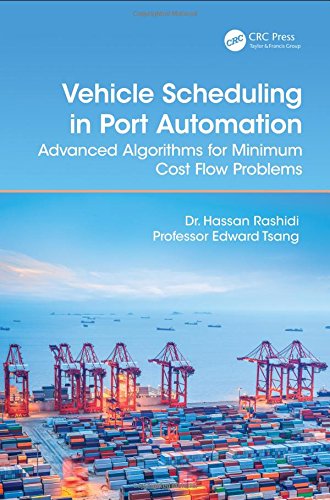

Most ebook files are in PDF format, so you can easily read them using various software such as Foxit Reader or directly on the Google Chrome browser.
Some ebook files are released by publishers in other formats such as .awz, .mobi, .epub, .fb2, etc. You may need to install specific software to read these formats on mobile/PC, such as Calibre.
Please read the tutorial at this link: https://ebookbell.com/faq
We offer FREE conversion to the popular formats you request; however, this may take some time. Therefore, right after payment, please email us, and we will try to provide the service as quickly as possible.
For some exceptional file formats or broken links (if any), please refrain from opening any disputes. Instead, email us first, and we will try to assist within a maximum of 6 hours.
EbookBell Team

5.0
88 reviewsContainer terminals are constantly being challenged to adjust their throughput capacity to match fluctuating demand. Examining the optimization problems encountered in today’s container terminals, Vehicle Scheduling in Port Automation: Advanced Algorithms for Minimum Cost Flow Problems, Second Edition provides advanced algorithms for handling the scheduling of automated guided vehicles (AGVs) in ports.
The research reported in this book represents a complete package that can help readers address the scheduling problems of AGVs in ports. The techniques presented are general and can easily be adapted to other areas.
This book is ideal for port authorities and researchers, including specialists and graduate students in operation research. For specialists, it provides novel and efficient algorithms for network flow problems. For students, it supplies the most comprehensive survey of the field along with a rigorous formulation of the problems in port automation.
This book is divided into two parts. Part one explores the various optimization problems in modern container terminals. The second part details advanced algorithms for the minimum cost flow (MCF) problem and for the scheduling problem of AGVs in ports.
The book classifies optimization problems into five scheduling decisions. For each decision, it supplies an overview, formulates each of the decisions as constraint satisfaction and optimization problems, and then covers possible solutions, implementation, and performance.
The book extends the dynamic network simplex algorithm, the fastest algorithm for solving the minimum cost flow problem, and develops four new advanced algorithms. In order to verify and validate the algorithms presented, the authors discuss the implementation of the algorithm to the scheduling problem of AGVs in container terminals.